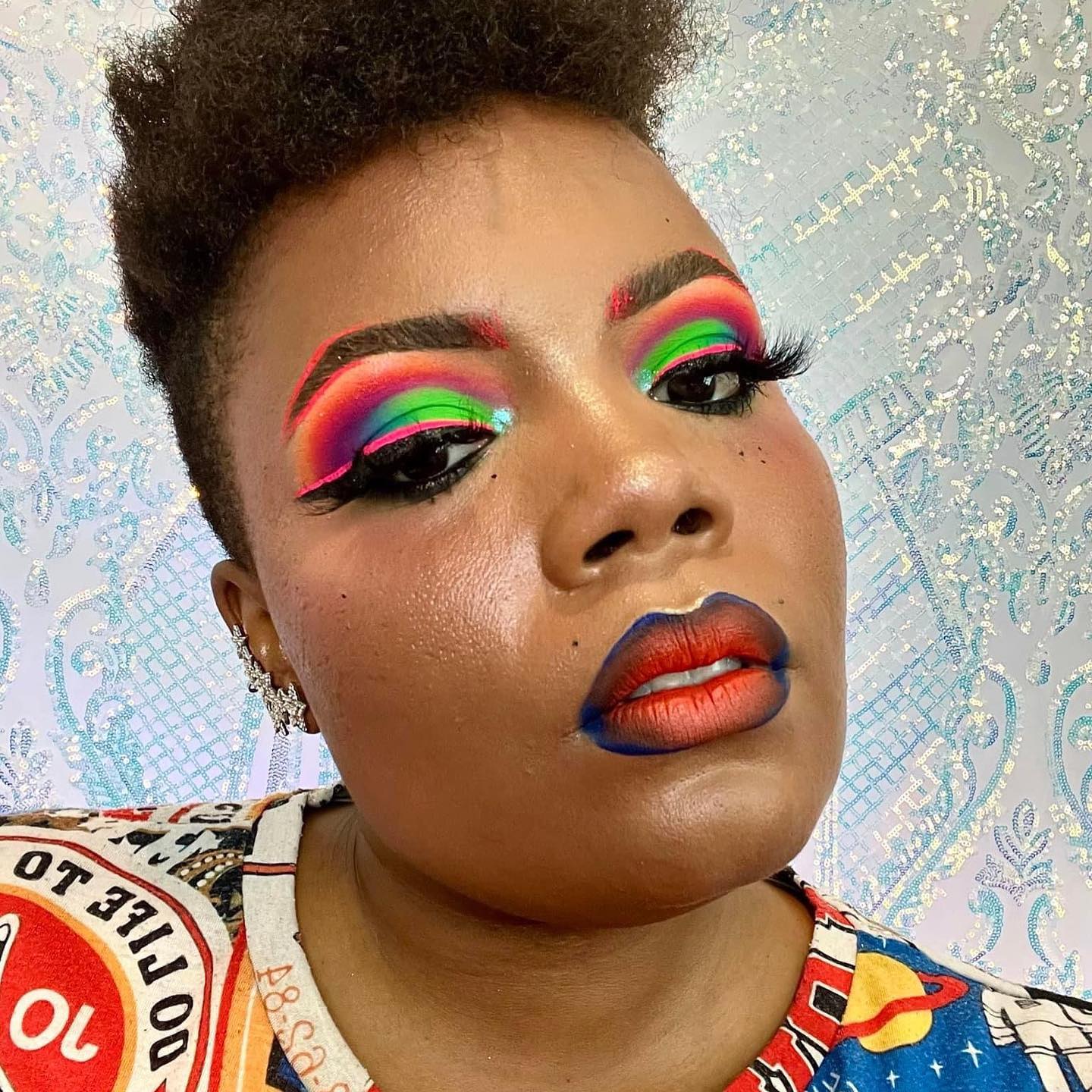Looks Like: The Ultimate Guide To Understanding This Everyday Expression
Looks like is an expression that's become super common in daily conversations, whether you're chatting with friends or scrolling through social media. It's one of those phrases that people use without even realizing how versatile it is. You might say, "Looks like it's gonna rain," or "Looks like we're running late." But have you ever stopped to think about what this phrase really means, where it comes from, or how it's used in different contexts? In this article, we'll dive deep into the world of "looks like" and uncover everything you need to know.
Now, you might be wondering, "Why should I care about 'looks like'?" Well, my friend, understanding this phrase can help you communicate more effectively, whether you're speaking English as a first language or learning it as a second. Plus, it's one of those phrases that makes your speech sound natural and conversational. Who doesn't want that, right?
So, buckle up because we're about to take a journey through the ins and outs of "looks like." By the end of this article, you'll not only know how to use it like a pro but also impress your friends with your newfound knowledge. Let's get started!
Table of Contents
- The Origin of "Looks Like"
- What Does "Looks Like" Really Mean?
- How to Use "Looks Like" in Different Contexts
- Practical Examples of "Looks Like" in Action
- Variations of "Looks Like" You Should Know
- The Popularity of "Looks Like" in Modern English
- Common Misconceptions About "Looks Like"
- Tips for Using "Looks Like" Like a Native Speaker
- Alternatives to "Looks Like" You Can Try
- Wrapping Up: Why "Looks Like" Matters
The Origin of "Looks Like"
Ever wondered where the phrase "looks like" comes from? Well, it's been around for centuries, and its roots trace back to Old English. Back in the day, people used similar expressions to describe appearances or make assumptions based on what they saw. The phrase evolved over time, becoming a staple in modern English conversations.
One interesting fact? The meaning of "looks like" hasn't changed much since its early days. It's always been about making observations or predictions based on visual cues. For example, if someone says, "Looks like it's gonna rain," they're basing that assumption on what they see in the sky.
Historical Context
In the 18th and 19th centuries, "looks like" started appearing more frequently in literature and everyday speech. Authors like Charles Dickens and Mark Twain used it in their works to add authenticity to dialogues. This helped solidify its place in the English language.
What Does "Looks Like" Really Mean?
At its core, "looks like" is all about perception. It's a way of expressing what you think is happening or what might happen based on what you're seeing. For instance, if you walk outside and see dark clouds, you might say, "Looks like it's gonna rain." You're not stating a fact; you're making an educated guess.
But here's the thing: "looks like" can also be used in more abstract ways. Imagine you're at a party and someone says, "Looks like everyone's having a great time." In this case, the phrase is used to describe the overall vibe or atmosphere.
Key Points to Remember
- "Looks like" is often used to make assumptions based on visual observations.
- It can also describe emotions, moods, or situations.
- The phrase is versatile and can fit into many different contexts.
How to Use "Looks Like" in Different Contexts
One of the coolest things about "looks like" is how flexible it is. You can use it in casual conversations, formal settings, or even in writing. Let's break down some of the most common contexts where you'll encounter this phrase.
Everyday Conversations
In everyday life, "looks like" pops up all the time. Think about when you're chatting with a friend about the weather, traffic, or plans for the weekend. For example:
- "Looks like the traffic's bad today." – Talking about road conditions.
- "Looks like we're going to be late." – Discussing timing and schedules.
Professional Settings
Believe it or not, "looks like" works in professional environments too. You might hear it in meetings or during presentations. For instance:
- "Looks like we're on track to meet the deadline." – Discussing project progress.
- "Looks like the market is shifting." – Analyzing trends or data.
Practical Examples of "Looks Like" in Action
To really understand how "looks like" works, let's look at some real-life examples. These scenarios will help you see how the phrase fits into different situations.
Scenario 1: At the Beach
You're hanging out at the beach with friends, and the weather suddenly changes. One of your friends says, "Looks like the wind is picking up. Maybe we should pack up." This is a perfect example of using "looks like" to make an observation and suggest a course of action.
Scenario 2: In a Meeting
During a team meeting, your boss might say, "Looks like we need to revisit our strategy." This shows how "looks like" can be used to initiate discussions or highlight issues.
Variations of "Looks Like" You Should Know
While "looks like" is the most common form of this phrase, there are a few variations you might come across. These alternatives can add variety to your speech and make it sound more natural.
Common Variations
- "Looks as though" – A slightly more formal version of "looks like."
- "Seems like" – A synonym that conveys a similar meaning.
- "Appears to be" – A more formal alternative often used in writing.
The Popularity of "Looks Like" in Modern English
According to data from Google Trends and other linguistic studies, "looks like" is one of the most frequently used phrases in English. It's especially popular in casual conversations and social media posts. In fact, a recent study found that "looks like" appears in over 70% of English-speaking interactions on platforms like Twitter and Instagram.
Why is it so popular? Well, it's simple, effective, and versatile. People love using it because it allows them to express ideas quickly without sounding too formal.
Common Misconceptions About "Looks Like"
Despite its widespread use, there are a few misconceptions about "looks like" that you should be aware of. For example, some people think it's only used for talking about appearances. However, as we've seen, it can be used in a variety of contexts, including abstract ideas and emotions.
Another misconception is that "looks like" is informal and shouldn't be used in professional settings. While it's true that it's often used casually, it can absolutely fit into formal conversations when used appropriately.
Tips for Using "Looks Like" Like a Native Speaker
Want to sound like a native speaker when using "looks like"? Here are a few tips to help you master this phrase:
- Pay attention to context. Make sure you're using "looks like" in a way that fits the situation.
- Practice using it in different scenarios. The more you use it, the more natural it will feel.
- Listen to how native speakers use it. Watch movies, TV shows, or listen to podcasts to hear "looks like" in action.
Alternatives to "Looks Like" You Can Try
If you're looking to mix things up, here are a few alternatives to "looks like" that you can try:
- "It seems that" – A slightly more formal option.
- "It appears as if" – Another formal alternative.
- "I think" – A more direct way of expressing an opinion.
Wrapping Up: Why "Looks Like" Matters
So there you have it – everything you need to know about "looks like." From its origins to its modern-day usage, this phrase is a powerful tool for effective communication. Whether you're chatting with friends, attending a meeting, or writing an email, "looks like" can help you express your thoughts clearly and naturally.
Now it's your turn! Try incorporating "looks like" into your conversations and see how it enhances your communication. And don't forget to share this article with your friends or leave a comment below. Let's keep the conversation going!

:max_bytes(150000):strip_icc()/11.AHintofGloss-2a688f600b444b9bbda2a97ecf0aebcd.jpg)

Detail Author:
- Name : Helga Waters
- Username : ryley84
- Email : zabshire@gmail.com
- Birthdate : 2000-02-29
- Address : 3805 Stephanie Roads Suite 787 Schadenside, WV 15056
- Phone : +1-803-613-6471
- Company : Moore-Terry
- Job : Postal Service Mail Sorter
- Bio : Placeat saepe mollitia neque vitae. Ducimus consectetur assumenda velit vel voluptatem magni. Sed architecto quis sit itaque fugiat porro ullam.
Socials
instagram:
- url : https://instagram.com/libby.towne
- username : libby.towne
- bio : Ullam sequi culpa voluptatum. Magni autem qui id et voluptatem aut.
- followers : 599
- following : 2557
facebook:
- url : https://facebook.com/libbytowne
- username : libbytowne
- bio : Enim quidem accusantium nisi.
- followers : 6614
- following : 2581
tiktok:
- url : https://tiktok.com/@libby.towne
- username : libby.towne
- bio : Tenetur delectus voluptatem sed sint quod et.
- followers : 6309
- following : 836
twitter:
- url : https://twitter.com/libby_towne
- username : libby_towne
- bio : Natus in quos dolorem expedita. Tempore et aut sunt eum. Voluptates repellendus molestiae molestiae et est maiores. Quibusdam fugiat quia totam nemo.
- followers : 5369
- following : 888
linkedin:
- url : https://linkedin.com/in/libby.towne
- username : libby.towne
- bio : Debitis voluptas eligendi perferendis id ut.
- followers : 1236
- following : 2144